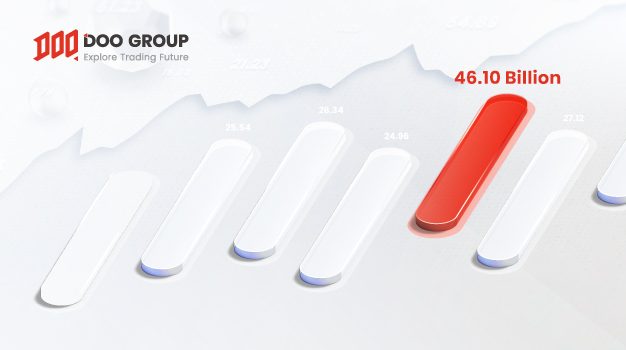How Non-Bank Liquidity Providers Support Fast Markets
The numbers of non-bank liquidity providers are on the rise and they have given supports to fast markets such as forex.
During the COVID-19 outbreak in late February last year, non-bank liquidity providers played a key role. They help to maintain an orderly market that has been triggered with volatility and liquidity squeezes.
Furthermore, it has changed to the point that additional liquidity or a different form of liquidity is needed.
Clients may have a few questions for you. Why do they need a new liquidity provider? Does it provide a better price, is it more efficient, does it provide more depth, or does it provide anything that isn’t available elsewhere?
To get a better and clear picture of the questions, explore how non-bank liquidity providers are benefitted to you through this article.

Rising of non-bank liquidity providers
The growth of non-bank liquidity providers can be attributed to several factors.
Regulation, increased bank capital costs, and conventional liquidity providers’ willingness to take a principal risk and participate in proprietary trading are among them.
It also reflects the fact that conventional liquidity providers have shifted their emphasis from volume to quality of flow, while in the past they were more concerned with maximising their volumes.
In addition, technology providers have recently expanded, potentially making it simpler, cheaper, and quicker for participants to gain access to resources that promote forex liquidity.
Filling the volatile and gaps
Non-bank liquidity providers made the most progress in retail FX by providing prices that banks couldn’t match.
As the demand for non-bank liquidity expands, pricing will become much more dynamic. Simultaneously, fills on the other side of the book should rise, resulting in a level of market and long-term liquidity.
Non-banks have established themselves as a formidable force on ECNs, where they are frequently among the top players.
The expansion of non-bank liquidity provision is a long-term profitable trend that can also generate a stable market.
One of the benefits of non-bank liquidity suppliers is that liquidity takers are more agnostic about the source of their liquidity.
Apart from that, non-bank liquidity will continue to be an important and necessary service in the future. When it comes to the more diverse currency pairs, non-bank liquidity providers can also prosper. They’ve put a lot of capital into technology, which tends to give them an advantage in the more outlying pairs, where the risks are higher but harder to measure.
Non-banks can also become valuable liquidity sources in times of market stress and uncertainty due to their ability to carry larger inventories.
Non-banks also seem to be much better at storing risks for longer periods, particularly as bank regulatory constraints tighten. As a result, non-banks tend to be best equipped to perform well in thin market conditions and periods of volatility.
Moving forward, at Doo Clearing we consider transparency as the absolute quality for liquidity providers. We earn clients’ and regulators’ trust by being as transparent as we can. Within the guidelines of privacy, as well as the law.
Doo Clearing continues to expand the liquidity offerings and update the infrastructure in the evolving market.

About Doo Clearing
Doo Clearing is part of The Doo Group, aiming to offer an institutional and bespoke level of liquidity access and clearing services for Forex and CFDs in equities, future and commodities, and other financial products.
With the robust clearing system powered by Doo Tech, Doo Clearing is now serving brokers, broker-dealers, hedge funds, family offices, fund managers, and professional traders globally.
Currently, Doo Clearing provides liquidity access and clearing services via our regulated entity in the United Kingdom. The Doo Group has other regulated entities in the United States, Mauritius, and Vanuatu, with operating centres in Hong Kong, Dallas, Singapore, Kuala Lumpur, and among others.
To get started, contact Doo Clearing’s Specialist team today for an insightful preview of how we can bring your brokerage to the next level.
London Office
Email: [email protected]
Website: www.dooclearing.co.uk
Hong Kong Office
Email: [email protected]
Website: www.dooclearing.com
-
 Doo Group Reports Record Trading Volume In July 2022News | 17 Aug 2022 04:57/PM GTMDoo Group, a large financial services group with financial technology at its core, recently released its July 2022 trading volume report. July 2022 Trading Volume Overvie…
Doo Group Reports Record Trading Volume In July 2022News | 17 Aug 2022 04:57/PM GTMDoo Group, a large financial services group with financial technology at its core, recently released its July 2022 trading volume report. July 2022 Trading Volume Overvie… -
 Doo Group Continues Helping Students Achieve Higher Education Through Doo BursaryNews | 07 Jul 2022 05:47/PM GTMIt is graduation season once more, and Doo Group would like to take this opportunity to congratulate all graduates for completing the study year. A big well done to those wh…
Doo Group Continues Helping Students Achieve Higher Education Through Doo BursaryNews | 07 Jul 2022 05:47/PM GTMIt is graduation season once more, and Doo Group would like to take this opportunity to congratulate all graduates for completing the study year. A big well done to those wh… -
 Doo Group Reports Record Trading Volume In April 2022News | 17 May 2022 08:31/PM GTMDoo Group, a large financial services group with financial technology at its core, recently released its April 2022 trading volume report. April 2022 Trading Volume Overvie…
Doo Group Reports Record Trading Volume In April 2022News | 17 May 2022 08:31/PM GTMDoo Group, a large financial services group with financial technology at its core, recently released its April 2022 trading volume report. April 2022 Trading Volume Overvie… -
 Doo Group Reports Record Trading Volume In March 2022News | 12 Apr 2022 04:18/PM GTMDoo Group, a large financial services group with financial technology at its core, recently released its March 2022 trading volume report. March 2022 Trading Volume Overv…
Doo Group Reports Record Trading Volume In March 2022News | 12 Apr 2022 04:18/PM GTMDoo Group, a large financial services group with financial technology at its core, recently released its March 2022 trading volume report. March 2022 Trading Volume Overv… -
 Efficiency: The Future Of Liquidity ManagementBlog | 03 Jun 2021 12:27/PM GTMNew technologies and globalisation are giving a major impact on liquidity management in recent years where efficiency is the future of it. According to a new Nordea report,…
Efficiency: The Future Of Liquidity ManagementBlog | 03 Jun 2021 12:27/PM GTMNew technologies and globalisation are giving a major impact on liquidity management in recent years where efficiency is the future of it. According to a new Nordea report,…
Newsletter
Instantly grasp the latest insightful trading views